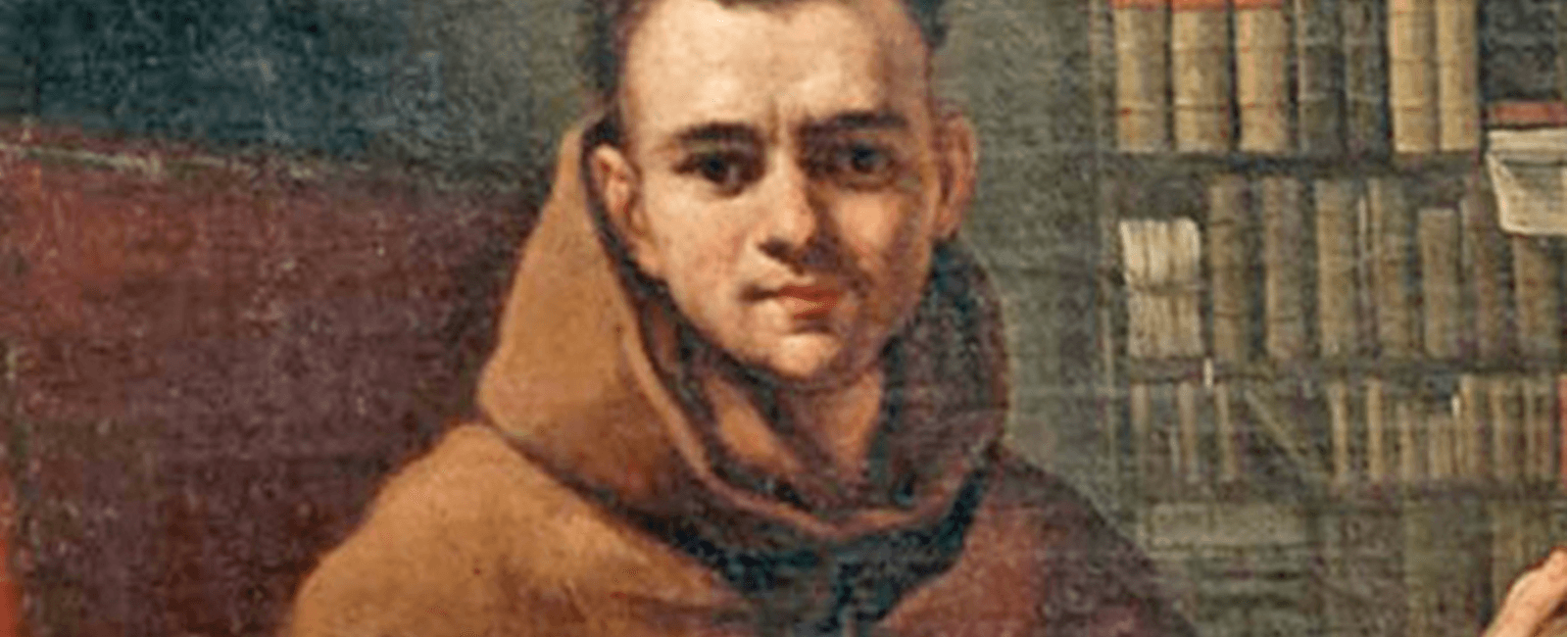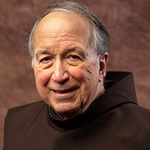Blessed John Duns Scotus: Franciscan Theologian

On November 8, Franciscans honor the memory of Blessed John Duns Scotus (c.1266-1308), one of the greatest of medieval theologians.
Early life of John Duns Scotus
His name describes his origins: John was a Scot, born in the town of Duns, Berwickshire. We do not know many details of Scotus's life. He apparently was from a leading family of Duns and entered the Friars Minor as a young man; we know he was ordained to the priesthood in March 1291, so it seems he was born in Duns about 1266 and entered the Order around 1280.

John's native town, Duns, Scotland, today.
Devoted to ministry of study, teaching
John’s life as a Franciscan was devoted to the ministry of study and teaching; he was educated at Oxford in the 1280s and early 1290s, and then began teaching at the Franciscan Schools in the late 1290s at the University of Oxford and Paris (where he became doctor of theology in 1305) and then the Franciscan study house in Cologne; his brilliant academic career was cut short by his death there in his early 40s.

Scotus's tomb in the Franciscan church in Cologne, Germany. The inscription reads: Scotia Me Genuit. Anglia Me Suscepit. Gallia Me Docuit. Colonia Me Tenet ("Scotland bore me, England received me, France taught me, Cologne holds me").
Significant thinker of the Middle Ages
Duns Scotus was one of the most significant Catholic thinkers of the Middle Ages, very influential in the development of both philosophy and theology.
Concept of “this-ness”
In philosophy, one of Scotus's distinctive concepts is his teaching on haecceitas or "this-ness," namely that each thing in creation has a distinctive characteristic that makes it precisely this unique individual.
Primacy of Christ, doctrine of Immaculate Conception of Mary
In theology, Scotus emphasized the absolute primacy of Christ (that is, God’s becoming incarnate in the person of Christ is the first thing God willed when deciding to embark on the work of creation) and the related doctrine of the Immaculate Conception of Mary.
Holiness always recognized
Within the Franciscan Order, John's holiness had always been recognized; devotion to him was officially confirmed in 1993 by Pope John Paul II, who declared him “blessed.”
Key points of Scotus’s theology
In 2010 Pope Benedict XVI gave a very nice instruction on key points of Scotus' theology.
Understanding John Duns Scotus
Dr. Mary Beth Ingham, CSJ has published several books that make Scotus accessible to the modern reader. Scotus for Dunces: An Introduction to the Subtle Doctor is the best general introduction to Scotus's thought. In Understanding John Duns Scotus: “Of Realty the Rarest-veined Unraveler," Ingham draws out the particularly Franciscan dimensions of Scotus's teachings.
The Primacy of Christ
To learn about Scotus’s thought on the Primacy of Christ, read an article by Dr. Philippe Yates.
Dominic Monti, OFM
Professor of Franciscan Research in the Franciscan Institute of St. Bonaventure University
Dominic V. Monti, OFM, is a Franciscan Friar of Holy Name Province (USA) and currently professor of Franciscan Research in the Franciscan Institute of St. Bonaventure University. He devoted the greater part of his ministry to teaching the History of Christianity, in particular the history of the Franciscan movement. He has contributed two volumes to the Works of St. Bonaventure series and is author of Francis & His Brothers, a popular history of the Friars Minor.

